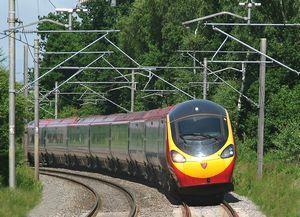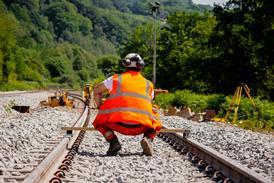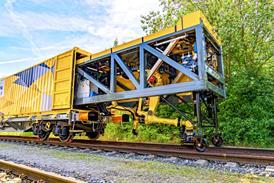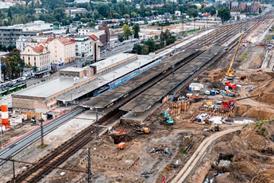
EUROPE: One compelling message to emerge from IQPC's Greener Rail conference in London on July 17-18 was that on-train metering of electric power use is coming in one form or another. As soaring energy costs reinforce more subtle pressures to cut CO2 emissions, the realisation that what can't be measured can't be managed has struck home.
Unife General Manager Eric Fontanel explained that 'we have to be able to measure' both 'the energy which is actually consumed by the train' and 'the overall energy consumption of the system'. Unife members are involved with the Railenergy research project which aims to cut the European rail industry's total energy consumption by 6% between now and 2020, despite a projected doubling of traffic.
In the August issue of Railway Gazette International we report on the initial findings from a metering trial with a Pendolino tilting trainset in the UK. But ATOC's Engineering Strategy Manager Phil Hinde pointed out that 'metering as a whole across the network is not a simple task'. He is part of a working group set up by the European Railway Agency and train operators 'to try and put together a common approach that can go into the interoperability standards, so not only do we not have arguments at national frontiers, but also our friends from Unife know what equipment and systems to offer customers on a common basis'.
'The unfortunate thing is you get bogged down with legal issues', Hinde warned. 'As if regulation of the rail industry across Europe isn't complicated enough, if you're not careful you also get bogged down into regulatory issues of the electricity supply industry. We are picking our way through a legal and regulatory minefield here'.
He viewed the UK's way of charging for traction power as 'a very murky area indeed'. It seems that 'large and sometimes indeterminate amounts of electricity are siphoned off into worthy causes ranging from signalling systems to coffee bars, lifts and escalators and so on, and considerably blur the picture as to where electricity goes for traction purposes.'
In sharp contrast, he continued, 'the Germans have gone lock, stock and barrel for metering, closely followed by our colleagues in Scandinavia who have even managed to set up a common system across Denmark, Sweden and Norway'. Operators have 'meters on the train reporting remotely over GSM or wi-fi links and get a train-by-train bill'.
In terms of metering standards, Cenelec's EN50463 is being revised to cover the equipment, how it is installed on the train and how the data is downloaded in an auditable way. This may include a GPS location unit and a clock 'so that you know exactly when and where the train is using the electricity', explained Hinde.
A UIC-led group is also trying to harmonise the approach by infrastructure managers to billing electric operators on their network. Hinde commented that this 'involves issues about data format, what data you exchange, do you include reactive power? We have also got to respect the fact the early adopters: Germany, the Nordic group, Slovenia, Spain and to a lesser extent Praha have gone down slightly divergent routes, and we can't expect them to spend several million euros changing their systems simply to align with a new European standard'.

















